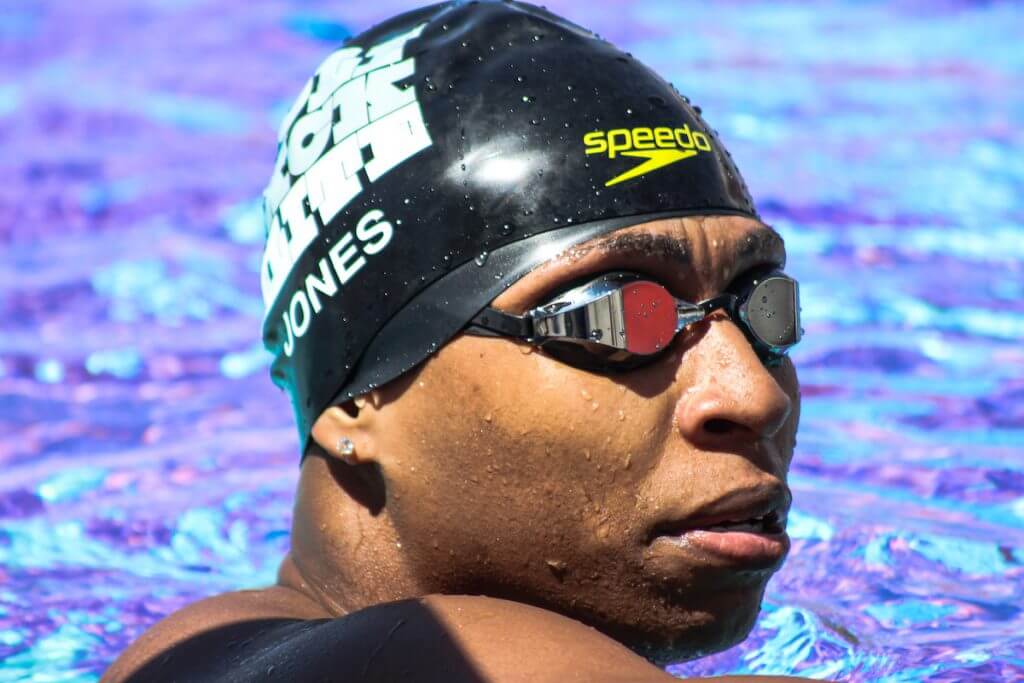Racial Disparities in Swimming: What Can We Do?

Racial Disparities in Swimming: What Can We Do?
History of Oppression in Swimming
Swimming, both historically and present day, is a predominantly white sport. Chances are that if you were to attend a swim meet in the United States, the majority of athletes would be white. According to USA Swimming’s 2019 report, only 1.4% of year-round swimmers are identified as African American or Black and 3.5% identified as Hispanic or Latino.
These severely unbalanced numbers are mostly due to the racism in swimming pools. During the 20th century, and the rise of popularity of recreational swimming pools, there was severe discrimination against people and communities of color with access to pools and swimming lessons that has caused modern swimming disparities. In the early and mid 1900s, larger public pools were off limits to people of color. By the late 20th century private swim clubs became popular in the suburbs, creating a new recreational culture for white Americans.
According to a 2017 report from the USA Swimming Foundation, 64% of African American children had no or low swimming ability, compared to 40% of white children. It is quite clear that the historical lack of accessibility to pools has created a major issue for black athletes.
The Racial Disparity in Our Sport
There is an obvious racial disparity in our sport. Within the sport there is continued evidence of both micro-aggressions and acts of overt racism against African American athletes. A sport that is supposed to create a welcoming and comforting environment for athletes is the same sport that can create a toxic and harmful environment for others.
Athletes Paving the Way
Despite the numerous hardships, many black Athletes have jumped through multiple hoops and made a name of themselves in the swimming community. In 2016, Simone Manuel became the first African American woman to win an individual Olympic gold medal in swimming, showing her power and strength in a monumental 100-meter freestyle.
And while Manuel is one of the most known African American swimmers, there are plenty of other athletes who are paving the way for others to follow. Maritza Correia was the first black American to set an American and world swimming record, and the first black female to join the U.S. Olympic team. Cullen Jones was the first black male swimmer to hold a world record in swimming, as a member of the United States 400 freestyle relay from the 2008 Olympics in Beijing. Lia Neal is also a two Olympic swimmer and won a silver medal in 2016.
Athletes are also doing a great job of using their platforms to initiate change and promote water safety. Jones has done a great job of using his voice and social media to initiate change within the swimming community. He has also served as an ambassador for USA Swimming’s “Make a Splash” initiative, which is a program with the goal of promoting water safety in underserved areas.
What You Can Do
So what can we do as a community to help fight these oppression? We can work on vocalizing the fact there is a disparity within the swimming world. There are numerous places where you can use your voice to make a difference. Whether it’s going to your coaches or going to your local government or board to talk about how your community can help teach swimming lessons to children of color, you can make a difference. Continuing to stand in solidarity and support the black community is very important, especially with the Black Lives Matter movement.
If you’re looking to do more research or make a donation, Diversity in Aquatics is a great place to go! This group dedicates its time, effort, and money to educate, promote, and support swimming and water safety for more vulnerable populations.



